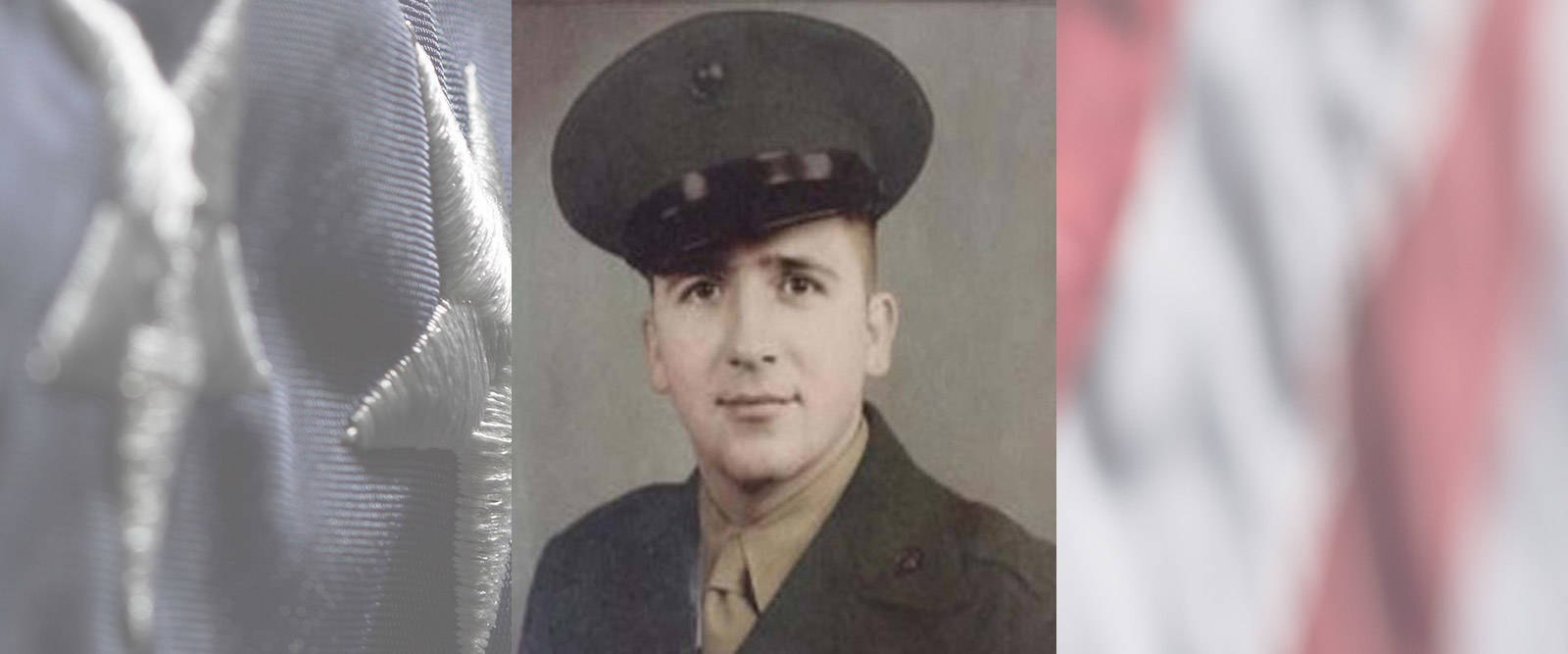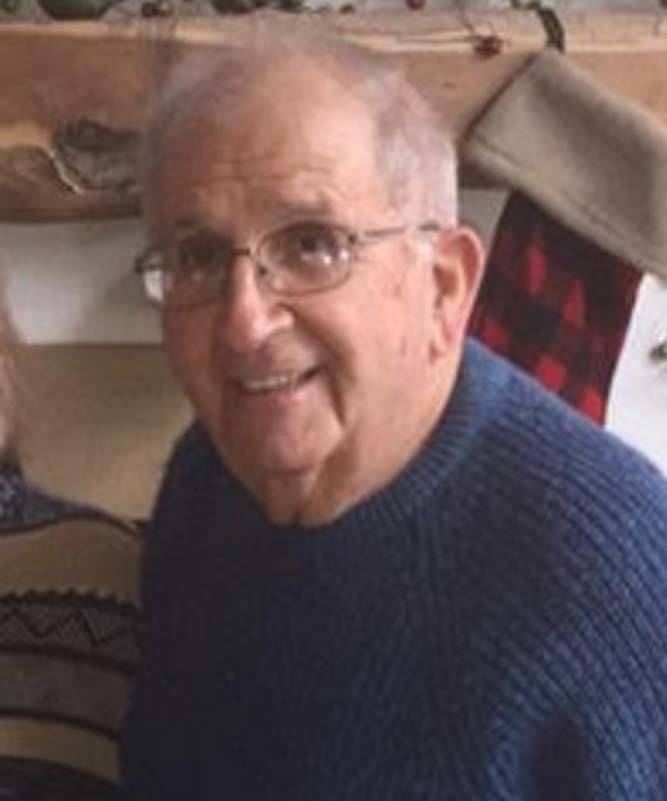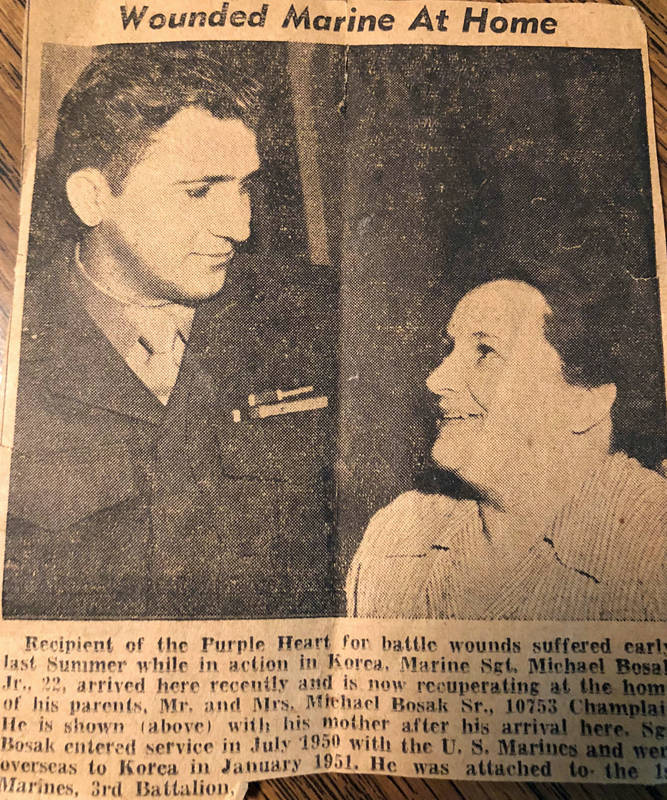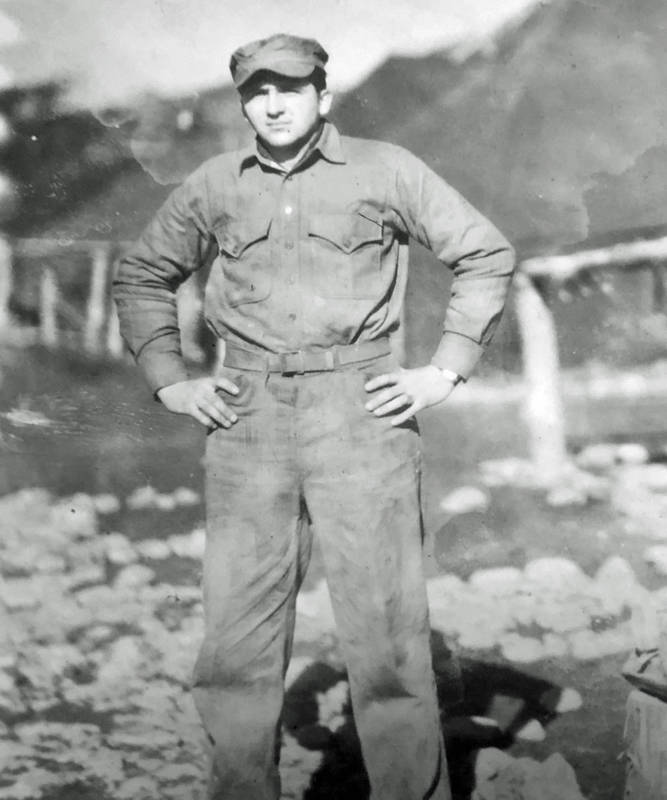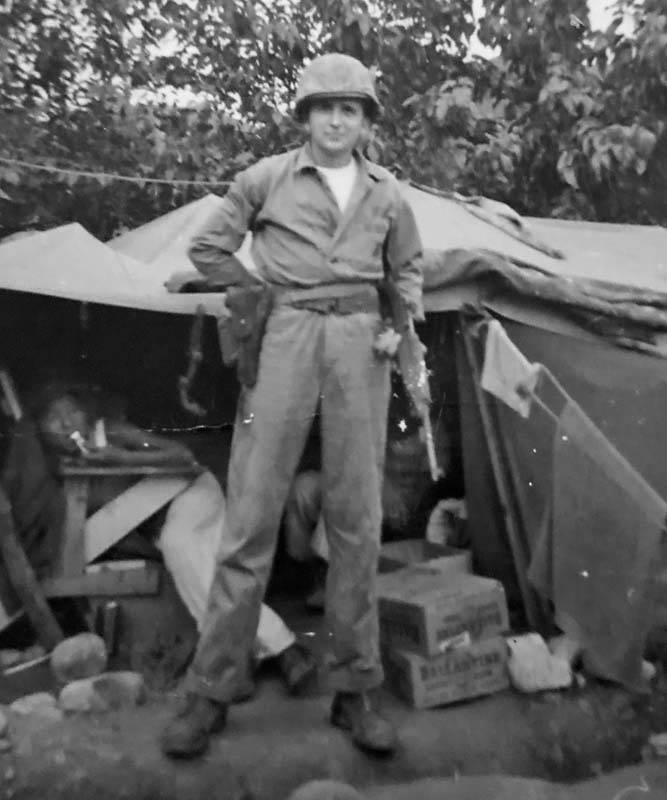U.S. Marine Corps Korean War Burnham, IL Flight date: 06/06/18
By Frank Hauenschild, Honor Flight Chicago Veteran Interviews Volunteer
Born in Chicago of immigrant parents, Michael and Pearl Bosak, Michael declares “Live Life!” Growing up in the North Pullman neighborhood of Chicago, Illinois, he considered himself very fortunate. During his youth, Michael would always be in the garage with his father working on the family car. Often, his father would place Michael on his lap and let him steer the car. This “home school” driver’s education class allowed him to drive himself to the license facility without a driver’s license, one very cold and icy day.
Michael attended Chicago Vocational School and graduated at the top of his class in machine shop. Michael was working at a print shop during his high school years and decided to remain as a typesetter, which he loved. Michael also loved cars and had a passion for sailboats. With his savings from his job, his first vehicle was a sailboat, not a car. He recalled the look on his father’s face when he asked to use the family car to tow his sailboat back home. Michael became an accomplished sailor on Lake Michigan and other lakes in the area including, Wolf Lake and Cedar Lake.
Michael had planned to join the Navy due to his love of water and sailing, but upon turning 19, he enlisted in the Marines because of his four buddies. The commitment was one year active military and then reserves for the following six years. Michael completed his boot camp at Parris Island, South Carolina and then served one year at Camp Lejeune, North Carolina. He returned home to work at the print shop thinking his active duty was complete. During this period of time, tensions increased in Korea. While enjoying a day sailing at Cedar Lake, IN he received a call from his mother, Pearl, who informed him of a letter for him from the U.S. Government. The letter advised him to get his affairs in order and report for active duty at Union Station, Chicago.
The troop train arrived at Camp Pendleton, near San Diego, California. He was overwhelmed at the number of Marines who were in the barracks and on the parade grounds. He was teamed up with one of his original enlistment buddies, Leonard “Lenny” Brajmer. Michael was then deployed to Tokyo, Japan, on a troop transport plane. He recalled the plane as a shell, with uncomfortable makeshift benches to sit on during the flight. While on the way to the first stop of the trip in Hawaii, one of engines went out over the Pacific and he truly wondered if they would make it to Hawaii or if they would have to ditch the plane in the Pacific. After repairs, they continued the trip to Tokyo with stops at Wake Island and Okinawa.
Upon arriving in Tokyo, he was bussed to Yokosuka Naval Base. While at Yokosuka, he served as a base guard and was trained in anti-aircraft artillery. During his six months at Yokosuka, he was able to enjoy many of the beautiful places in Japan. Not giving up his love of sailing, he enjoyed crewing with some of the upper echelon naval officers who had sailboats. While at the Yokosuka base, a Marine officer came up to Michael and Lenny and asked if any of them could type on a typewriter. Of course, Michael being a typesetter was an excellent typist, but being a Marine, did not put up his hand as he believed he would be too embarrassed. Lenny, however, put up his hand immediately. Shortly afterwards, Michael boarded a boat to Southern Korea and Lenny, his buddy, remained in Yokosuka, Japan, working in administrative duties as a typist.
Upon arriving in South Korea, Michael was given a Browning Automatic Rifle, (BAR) and was assigned to a fire team which consisted of a Marine with a BAR and three Marines with rifles. His fire team then operated with three other fire teams and a machine gunner to make up a fire squad. The morning after Easter, his fire squad moved up to the front lines. At first, along with his BAR fire team, Michael worked as a stretcher bearer. This was his first experience caring for anyone who was wounded. Michael recalled carrying many seriously wounded soldiers down the mountainous terrain while live fire battles were continuing. He and others would carry the stretchers to the awaiting helicopters where they were met by medical teams. The medics would place the injured soldiers in baskets attached to the helicopter landing gear runners, for transport to a M.A.S.H. field hospital. Michael was astounded at the many type of injuries he encountered.
During his time in combat, he recalls the throng of North Koreans and Chinese forces who attacked the UN front lines. He related that those forces were not very well trained and many had no weapons. Michael said that when an enemy soldier was shot, another unarmed soldier would pick up the weapon and continue the attack. He also grimly remembers the use of bulldozers to bury the fallen enemy bodies after many battles.
Michael also recalled the extreme cold and the rifle shots hitting the ice near him, causing ice fragments to pellet his body and face. He stated that many times he believed he was hit by a bullet when he was actually being struck by ice. Michael believes that his best piece of equipment was his insulated sleeping bag that protected him from the frozen ground. He would rather give up his BAR, ammunition and food before giving up his sleeping bag. The heat in the summer was just as brutal as the cold in winter. A typical month in combat was thirty days on the front lines and then back to rest, clean up and to get new clothing. Since his unit was always moving and advancing, many times they were immediately taken back to the front lines.
While advancing up a mountain, Michael was struck by fragments in his back and leg during a mortar attack. He was transported to a newly formed M.A.S.H. unit for treatment and rest. After a few days of recovery, Michael noticed a creek down a hill from the field hospital. He decided to walk down to the creek to bathe and clean up. Upon returning, a hospital team member asked him where he went. Michael was informed never to leave the camp and that he was very lucky because the creek area was full of anti-personnel mines known as “Bouncing Bettys.” A Bouncing Betty was a explosive device that when tripped would explode in the air spraying fragments in all directions. The initial reaction when encountering a Bouncing Betty would be for a soldier to “hit” the ground and lay flat, but this sometimes made you a bigger target for fragments. Michael smiled and said he was fortunate to be able to clean up and not “meet Betty.”
Returning to the front lines as a Buck Sergeant with Purple Heart, Michael then received orders to go home but there was little time to get ready. He grabbed his belongings and the next thing he knew he was on an LSD landing craft heading to his larger boat, home. During his travels back to the States, he again ran across his old friend “Lenny,” who had received the typing assignment. Michael just chuckled when recalling being asked if he could type, and why he didn’t raise his hand.
He returned to his home in North Pullman where he married his wife, Dorothy, and moved to Burnham, Illinois where they raised four children, Wendy, Andrea, Tina and Mike. Remaining active, Michael and his family often rode bicycles; he continued his lifelong love of sailboats, often competing in races and regattas. Michael lost his wife in 2016 but still lives in the home where he and Dorothy raised their family. “Live Life” Michael said to me when I parted. At 88 years old, Michael was going to race his sailboat on Wolf Lake the next day!
Michael, thank you for your service, you are a genuine hero. Enjoy your well-deserved Honor Flight!



